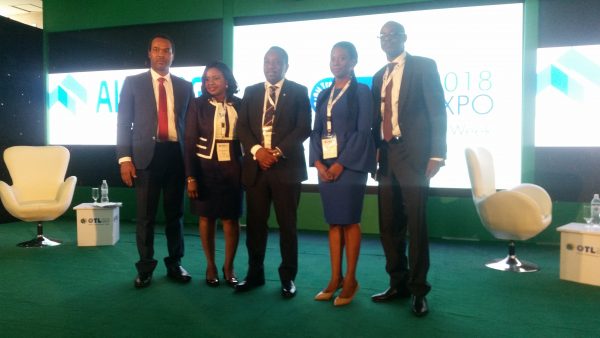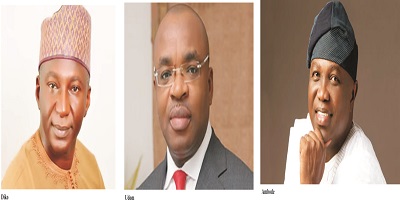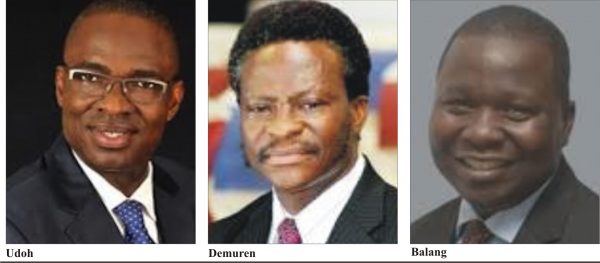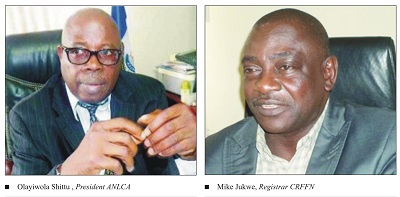Nigeria’s Automobile Industry: Challenges And Prospects
 The Federal Government has granted grace period for payment duties for cars and other automobiles of Nigerians who may have defaulted in payment. However, just like the restriction on importation of vehicles via the land borders, many Nigerians have asked if the nation should be bothered about such efforts.
The Federal Government has granted grace period for payment duties for cars and other automobiles of Nigerians who may have defaulted in payment. However, just like the restriction on importation of vehicles via the land borders, many Nigerians have asked if the nation should be bothered about such efforts.
How did the defaulters escape without paying the accurate duty at the initial stages one may ask? What other measures should have been put in place to avoid such draw back and hindrance to legitimate trade?
Speaking to MMS Plus in a recent interview, the National President of the Nigeria Institute of Freight Forwarders and Customs Brokers (NIFFCB), Dr. Zebullion Ikokide condemned the nonchalant attitude of the agencies of government who failed to collect the accurate duties at the right time.
Ikokide equally queried the government for the restriction of land border importation of vehicles. He maintained that the government should be able to say that the importation of vehicles should be new ones.
Ikokide noted that the government could enforce this by, “reducing the rate of import duty on new vehicles to 5% while they could increase the duty on used vehicles to 70%. The government has not done this so people would prefer the trade of used vehicles because it is cheaper. We should discourage the importation of used vehicles by increasing the duty”
“Give ridiculous low duty for new vehicles and very high duty for used vehicles and in few years the nation would be flooded with new vehicles. People in the business of importing used vehicles would simply migrate to importing new ones and the number of vehicles they import would increase which would mean more money for the government” he said.
Meanwhile, vehicle dealers in the country have thrown their weight behind the Nigeria Customs Service (NCS) for its policy of collection duties for cars and other automobiles of Nigerians who may have defaulted in payment.
National President of the Association of Motor Dealers of Nigeria (AMDON), Prince Ajibola Adedoyin, who spoke to journalists in an interview recently, described the grace period for the payment as an opportunity for all vehicle dealers and owners to pay duties on their vehicles to avoid losing them.
He stated that members of the association would take advantage of the duty collection window provided by the Customs from March 13 to April 14, 2017 as demanded by AMDON.
According to him, AMDON had suggested the mode of duty collection on vehicles to the Controller-General of Customs, Col. Hameed Ibrahim Ali (Rtd) as a way of resolving the challenges being encountered by its members.
Adedoyin pointed out that car dealers who were the most affected by seizures of cars and other vehicles had established a partnership with the Customs over the years.
He added that the dealers established a rapport with the Customs to save themselves from losses, arrests and embarrassment occasioned by default in payment of vehicles duties.
“Some of our members were arrested and detained in the past by the police after they sold vehicles that were eventually seized by Customs for non-payment of duties. Some of the vehicles, for which our members were arrested, belonged to Nigerians abroad and some importers who only use our sales outlets to market and sell them off.
“Months after such sales were made the buyers will come with police officers to arrest car dealers for selling vehicles without genuine papers. The buyer, with the support of the police, will then be demanding for refunds of total amount spent in buying the vehicle whose money the car dealer had remitted to the actual owners after collecting a commission of less than 5% of the sum,” he explained.
He urged those with vehicles without proof of duty payments to take advantage of the opportunity to pay up the duties. There has been mixed reactions from Nigerians over Customs directive that all vehicles without proofs of duty payment should do so between March 13 and April 14, 2017.
Meanwhile, the Centre for Human Rights and Social Justice (CHRS) has lauded the National Assembly over its invitation to the Comptroller-General of the Customs, Hameed Ali, to appear before it on Wednesday.
While condemning the new vehicle duties policy, the group said the invitation extended to the Customs boss would sanitize the system and ameliorate the sufferings of the people.
A statement by its Chairman, Comrade Adeniyi Alimi Sulaiman, commended members of the Senate, particularly Senator Dino Malaye and Deputy Majority Leader, Senator Bala Ibn Na’allah, for standing up against what it described as the illegal and anti-people policy of the service.
Meanwhile, the Deputy Comptroller-General of Customs on Tariff and Trade, Umar Abubakar, believes that the establishment of bonded car terminals would boost import and employment rate in the country.
Abubakar stated this on Thursday last week in Abuja, stressing that the essence of introducing car terminals was to increase imports and to push up the level of employment. He added that imports increases revenue generation for the service.
“Customs intention of establishing bonded car terminals is to boost employment and imports. We have discovered that what attracts our youths to other neighbouring countries is that most of those countries had car parks close to their seaports, where you find all kinds of jobs like mechanics.
“We find out that these car terminals will help generate jobs for our youths and this will also enhance standard of living because it will help our youths to stop going to Cotonou to seek for jobs; they can also get these jobs in Nigeria,” Abubakar said.
He said that in a country where youths were engaged in different kinds of jobs, crime rate tended to reduce.
According to him, a sub-committee has already been formed comprising Association of Motor Dealers of Nigeria (AMDON) and Customs to work out the modalities on car terminals.
The Nigeria Customs Service in January after banning the importation of vehicles through the land borders, said it would grant licences to car dealers for bonded car terminals across the country to ease stress of doing business.
Customs said that the policy was aimed at strengthening national economy, providing job opportunities for the youth and to strengthen the businesses of motor dealers in the country.
It said that the establishment of bonded car terminals would have multiplier effect, adding that it would bring about commercial banks opening branches in the places (terminals) for transactions.







